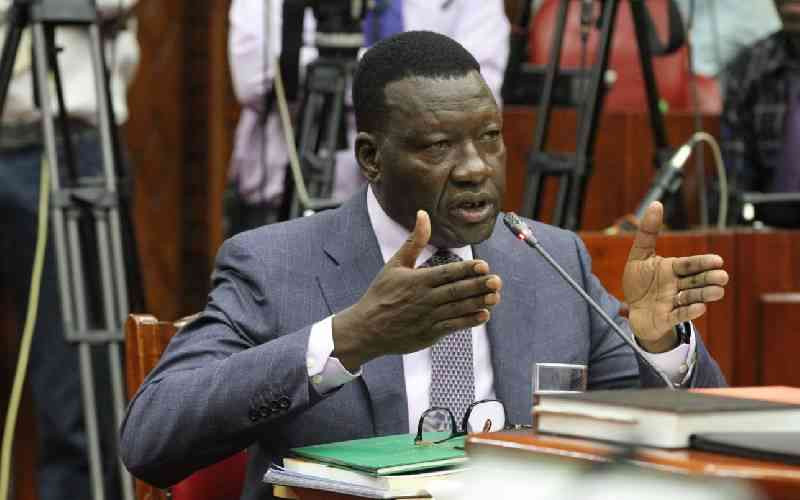- Details
- East Africa
- 876
Energy Cabinet Secretary Davis Chirchir is on Friday, September 1, expected to appear before the National Assembly Committee on Energy to shed more light on the nationwide power outage last week.
Chirchir will be accompanied by Principal Secretary of State Department for Energy, Alex Mwachira, the Kenya Power Chief Executive Officer Joseph Siror, and his KETRACO and KENGEN counterparts.
The bosses are expected to give a detailed explanation of what could have caused the outage that left thousands of passengers stranded at the Jomo Kenyatta International Airport (JKIA), whilst affecting businesses and operations across the country.
Last week, the committee chaired by Mwala MP Vincent Musyoka expressed its disappointment over the incident promising to address the issue, including tabling a report on the high cost of electricity in Kenya.
After the outage, Kenya Power attributed the failure to a system disturbance.
Transport Cabinet Secretary Kipchumba Murkomen later announced the dismissal of Kenya Airports Authority (KAA) Managing Director Alex Gitari and General Manager Project and Engineering Services, Fred Odawo, following the blackout that affected operations at the ever-busy JKIA. By Mate Tongola, The Standard






